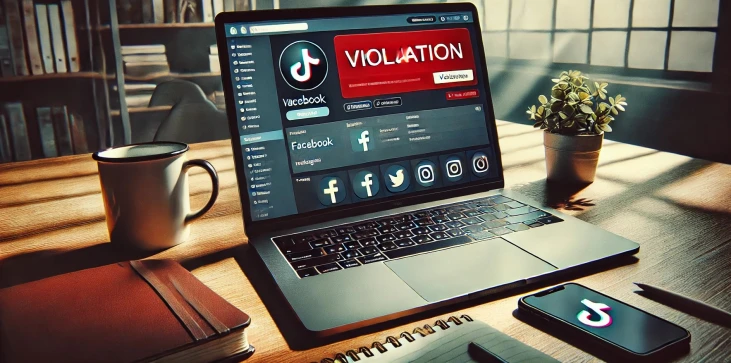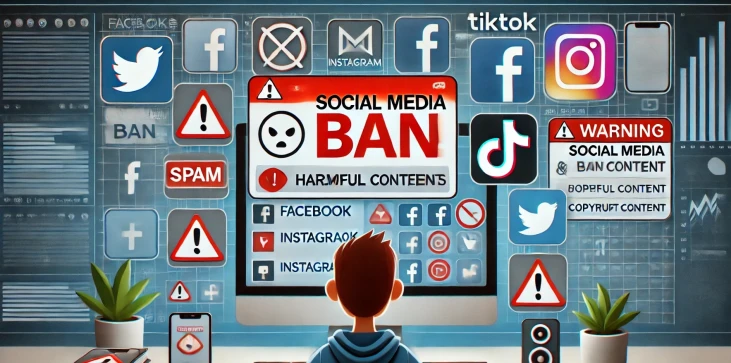
Social media platforms like Facebook, Instagram, and TikTok have grown into vital parts of our daily lives. They allow individuals to connect, share, and engage with a vast audience. However, with this power comes responsibility. To maintain the integrity and safety of their platforms, companies have created community guidelines that all users must follow. Violations of these rules can lead to temporary suspensions or even permanent bans. Knowing the reasons behind these bans is essential for anyone hoping to maintain a positive presence on social media. Below are five of the most common reasons you might get banned from these platforms and tips on how to avoid them.
One of the leading reasons for getting banned from social media is the posting of inappropriate, explicit, or harmful content. Platforms like Facebook, Instagram, and TikTok have strict rules against hate speech, violent content, harassment, or any material that could harm others. Posts that contain nudity, excessive violence, or promote dangerous activities are often flagged and removed. Repeated violations can lead to the permanent suspension of an account. To avoid this, always review the platform’s content policies and ensure your posts align with the community guidelines.
Spamming is another common reason accounts get banned. This includes repetitive posts, messages, or comments that annoy or disrupt other users' experiences. On top of this, many users resort to automation tools to grow their following quickly, which violates the terms of service for most platforms. Instagram and TikTok, in particular, are stringent about using bots or third-party applications that manipulate engagement (likes, follows, comments). Such practices are seen as unfair and against the authentic interaction that these platforms encourage.
Creating fake profiles or impersonating someone else is a major reason for getting banned on social media. Platforms invest a lot in verifying the authenticity of users, especially public figures and businesses. Fake accounts can mislead users and sometimes result in fraud. If caught, these accounts are quickly flagged and permanently banned. It’s important to use your real identity and represent yourself truthfully online to avoid penalties.
Posting content that you do not own, without permission, is a serious violation that can lead to bans. This includes images, music, videos, and text that belong to someone else. Platforms like Facebook, Instagram, and TikTok are actively working with copyright holders to protect their intellectual property. Repeated copyright strikes can result in a permanent ban. To avoid this, always ensure that the content you are posting is either original or properly credited with the owner’s consent.
Social media platforms are dynamic spaces for expression and communication, but they are governed by strict rules to maintain a safe and respectful environment. Whether it's posting inappropriate content, spamming, creating fake profiles, or violating copyright laws, all actions have consequences. By understanding these common reasons for being banned and practicing responsible online behavior, users can protect their accounts and continue to engage meaningfully on social media.

Yes, most platforms allow users to appeal a ban, especially if you believe it was done in error. You will need to submit a form or contact their support team to review your case.
In some cases, deleting content might help, but if it has already been reported and reviewed, the ban may still proceed. Always avoid posting anything that might violate the community guidelines to be safe.
Temporary bans typically last from a few hours to several weeks, depending on the violation. However, repeated offenses could lead to a permanent ban if the platform sees a pattern of harmful behavior.